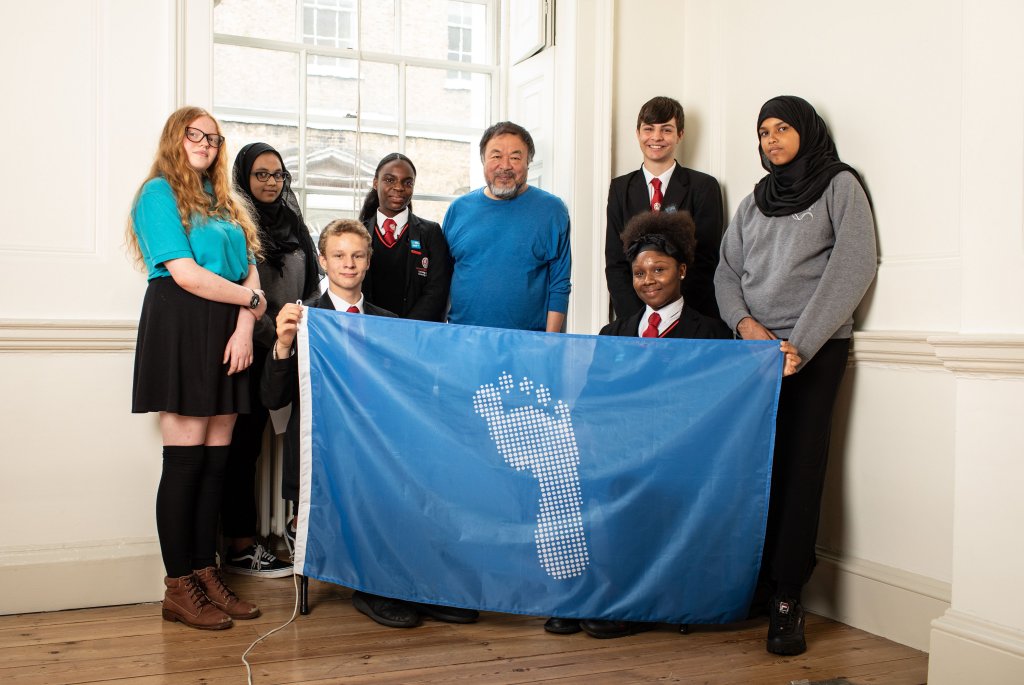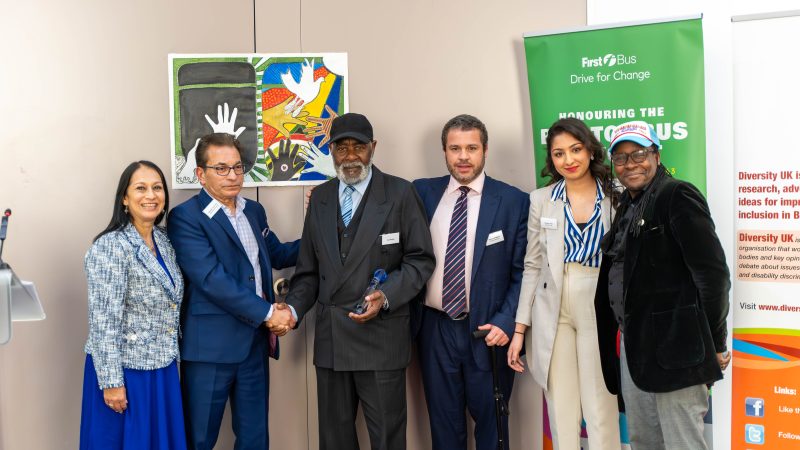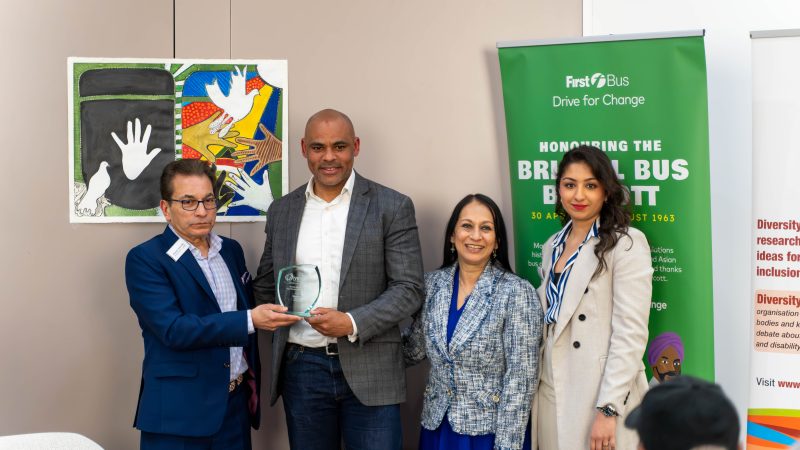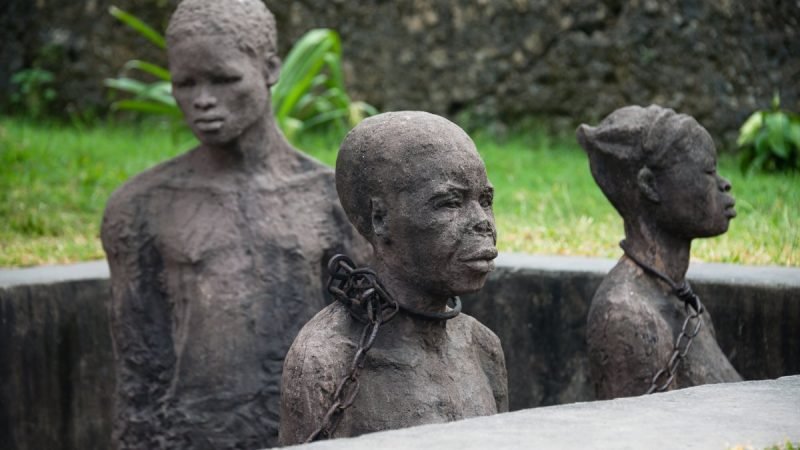71st Anniversary of Human Rights declaration

The 71st Anniversary of the Universal Declaration of Human Rights was marked on 10th December 2019 with 'Fly the Flag', to fly artist Ai Weiwei’s flag, an initiative jointly launched by Fly The Flag is co-produced by Fuel (Lead Producer), Amnesty International, Donmar Warehouse, Human Rights Watch, Liberty, National Theatre, Sadler’s Wells and Tate. In a unique collaboration, a wide-ranging group of arts organisations and human rights charities commissioned Ai Weiwei to design a new flag in response to the real and present dangers of a world changing at break-neck speed and a community that has forgotten why human rights are so important, to offer hope and to educate generations to come about the absolute importance of universal human rights.
The original Universal Declaration of Human Rights was created by women and men who witnessed first-hand the horror and inhumanity of the Second World War and were determined that it should never be repeated. And today, through the UK Human Rights Act, this powerful idea protects the rights of everyone in this country. Human rights inspire a vision of a world free from abuse and cruelty and empowered by protecting people from state abuse and curbing the reach of society’s most powerful, ensuring that a minimum standard of safety and dignity is guaranteed to every human being.
Fly The Flag is co-produced by Fuel (Lead Producer), Amnesty International, Donmar Warehouse, Human Rights Watch, Liberty, National Theatre, Sadler’s Wells and Tate. Additional co-commissioners include Coventry City of Culture Trust and Farnham Maltings.
Fly The Flag advocates include: 20-21 Visual Arts Centre; 64 Million Artists; Aberystwyth Arts Centre; Action Aid; Action Aid UK; Action for Children’s Arts; Africa Centre; Akram Khan Company; American Repertory Theater; Amgueddfa Cymru – National Museum Wales; Amnesty International UK; Arnolfini; Art Fund; Art Breath; Artsreach; ArtsAdmin; Atlas Arts; Attenborough Centre for the Creative Arts; Attiki Cultural Society; Ava Hunt Theatre; Ballet Cymru; BALTIC Centre for Contemporary Art; BAM; Barnsley Civic; Battersea Arts Centre; Belarus Free Theatre; Belgrade Theatre Coventry; Birmingham Rep; Black Country Touring; Boy Blue; Brighton Dome & Festival; Bring Hope Humanitarian Foundation; Bristol Old Vic; Bush Theatre; Cambridgeshire County Council; Camcorder Guerillas; Camden People's Theatre; Centre for Contemporary Art Derry~Londonderry; Chineke Foundation; Clean Break; Common Wealth; Contact; Coombe Farm Studios; Corn Exchange Newbury; Cornwall Museums Partnership; Counterpoints Arts; Coventry University; Creative Industries Federation; Creative People & Places Hounslow; Cultúrlann McAdam Ó Fiaich; curious directive; DACS; Dance Umbrella; Donmar Warehouse; Dyslexia Scotland; Eden Court; Emergency Exit Arts; Edinburgh International Festival; English National Ballet; English National Opera; Environmental Justice Foundation; Farnham Maltings; Fawcett Society; Fife Contemporary; Freedom Festival Arts Trust; Fuel; Fun Palaces; Gecko; Golden Thread Gallery; Graeae Theatre; Greenwich+Docklands International Festival; Group for Human Rights, University Magdeburg; Hackney Council; Half Moon Theatre; Coventry-based Highly Sprung; Historic England; Historic Royal Palaces; HOME Manchester; Human Rights Watch; Ikon Gallery; In Between Time; Index On Censorship; Jewish Museum London; Josef Herman Art Foundation Cymru; Julie's Bicycle; Kali Theatre; Kiln Theatre; Kiron; Lakes Alive; Ledbury Poetry Festival; Liberty; Libraries Unlimited, Devon; Lisson Gallery; Live Art Development Agency; Live Theatre, Newcastle; Liverpool Irish Festival; London College of Fashion; LW Theatres; Lyric Hammersmith; Manchester Art Gallery; Manchester International Festival; MAYK; Merseyside Dance Initiative; Mikron Theatre; MIND; Mind The Gap; Modern Art Oxford; National College for Creative & Cultural Industries; National Museums Liverpool; National Rural Touring Forum; National Theatre; National Theatre of Scotland; National Theatre Wales; Northern Stage; Nottingham Playhouse; Oficina de Proyectos Culturales; Old Vic; Oriel Myrddin Gallery; Pier Arts Centre; Prime Theatre; Project Everyone; Proteus; Polka Theatre; Refugee Action; RightsInfo; Roundhouse; Routes Collective; Royal Academy of Arts; Royal & Derngate, Northampton; Royal Exchange Theatre; Royal Opera House; Royal Shakespeare Company; Rural Arts; Rye Creative Centre; Sadler's Wells; Sage Gateshead; Scottish Opera; Serpentine Galleries; Shakespeare’s Globe; Slung Low, Leeds; SOAS, University of London; Sole Purpose Productions; Somerset House; Sonia Sabri Company; Sound City; Southbank Centre; South East Dance; Stephen Joseph Theatre; Stonewall; Studio Wayne McGregor; Sunderland Culture; Tate; Talking Birds; Telegraph Museum, Porthcurno; The Core at Corby Cube; The Gulbenkian; The Public Meeting; The Ropewalk; The Royal Standard, Liverpool; The Work Room; The Yard Theatre; Theatre Peckham; Tiata Fahodzi; Turner Contemporary; Tusk Task Force; Tyne & Wear Archives & Museums; Vesturport; Unity Theatre; University of Hull; University of Northampton; University of Suffolk; University of Sussex; University of Winchester; Vamos Theatre; Walk the Plank; What Next? National Network; World Fringe; World Heart Beat; Writing West Midlands; Yorkshire Dance; Young at Art; Young Vic.
Fly The Flag ambassadors include: Gillian Anderson; Caryl Churchill; Stephen Daldry; Zehra Doğan; Noma Dumezweni; David Edgar; Chiwetel Ejiofor; Inua Ellams; Richard Eyre; Pete Fowler; Stephen Fry; David Hare; David Isaac; Kazuo Ishiguro; Helena Kennedy QC; Francesca Klug; Jude Law; Paul Mason; Ross Millard; Chi-chi Nwanoku OBE; Geoffrey Robertson QC; Sir Ken Robinson; Juliet Stevenson; Joe Wright.
In addition to the co-producers, the Fly The Flag steering group includes: Erica Bolton; David Lan; Phyllida Lloyd; Gbolahan Obisesan; Kenneth Olumuyiwa Tharp and Alex Beard.
With thanks to the Donmar Warehouse for their learning resources and Writing Wrongs project, along with Thomas Tallis School and Hampstead School for their contribution to Fly The Flag.
“Weiwei is honoured to have the opportunity to design a flag for the 70th anniversary for the Universal Declaration of Human Rights. As we all come to learn, human rights are the precious result from generation after generation's understanding of the human struggle. He is proud to be a part of this force.” — Ai Weiwei’s studio, Berlin
Joint Statement for FLY THE FLAG
More needed than ever before, but under severe threat
As the world changes at break-neck pace, the need for our hard-won, anchored system of legal protections for human rights is more vital than ever, yet that system is under severe threat at home and abroad. We are living through turbulent times. Political instability, economic inequality, social change and technological revolution create new challenges and uncertainties.
The Universal Declaration of Human Rights, 71 years old today, offers people a beacon of hope in these uncertain times.
The Declaration was created by women and men who witnessed first-hand the horror and inhumanity of the Second World War and were determined that it should never be repeated. And today, through the UK Human Rights Act, this powerful idea protects the rights of everyone in this country.
Human rights are more than just a catchphrase. They inspire and empower. Inspire a vision of a world free from abuse and cruelty. Empower by protecting us from state abuse and curbing the reach of society’s most powerful, so that a minimum standard of safety and dignity is guaranteed to every human being.
In these difficult and unsettling times, universal human rights have never been more important.
About Ai Weiwei
Ai Weiwei is renowned for making strong aesthetic statements that resonate with timely phenomena across today’s geopolitical world. From architecture to installations, social media to documentaries, Ai uses a wide range of mediums as expressions of new ways for his audiences to examine society and its values. Recent exhibitions include: Ai Weiwei: RAIZ at Oca in São Paulo, Ai Weiwei: Life Cycle at the Marciano Art Foundation in Los Angeles, Fan-Tan at Mucem in Marseille, Good Fences Make Good Neighbors with the Public Art Fund in New York City, Ai Weiwei on Porcelain at the Sakip Sabanci Museum in Istanbul, Ai Weiwei: Trace at Hirshhorn at the Hirshhorn Museum and Sculpture Garden in Washington D.C., Maybe, Maybe Not at the Israel Museum in Jerusalem, and Law of the Journey at the National Gallery in Prague.
Ai was born in Beijing in 1957 and currently resides and works in Berlin. Ai is the recipient of the 2015 Ambassador of Conscience Award from Amnesty International and the 2012 Václav Havel Prize for Creative Dissent from the Human Rights Foundation. Ai’s first feature-length documentary Human Flow premiered at the 74th Venice Film Festival in competition.
About Amnesty International
Amnesty International works to protect people wherever justice, freedom, truth and dignity are denied. As a global movement of over 7 million people, Amnesty International is the world's largest grassroots human rights organisation. it investigates and exposes abuse, educates and mobilises the public, and helps transform societies to create a safer, more just world. Amnesty International received the Nobel Peace Prize for its life-saving work.




